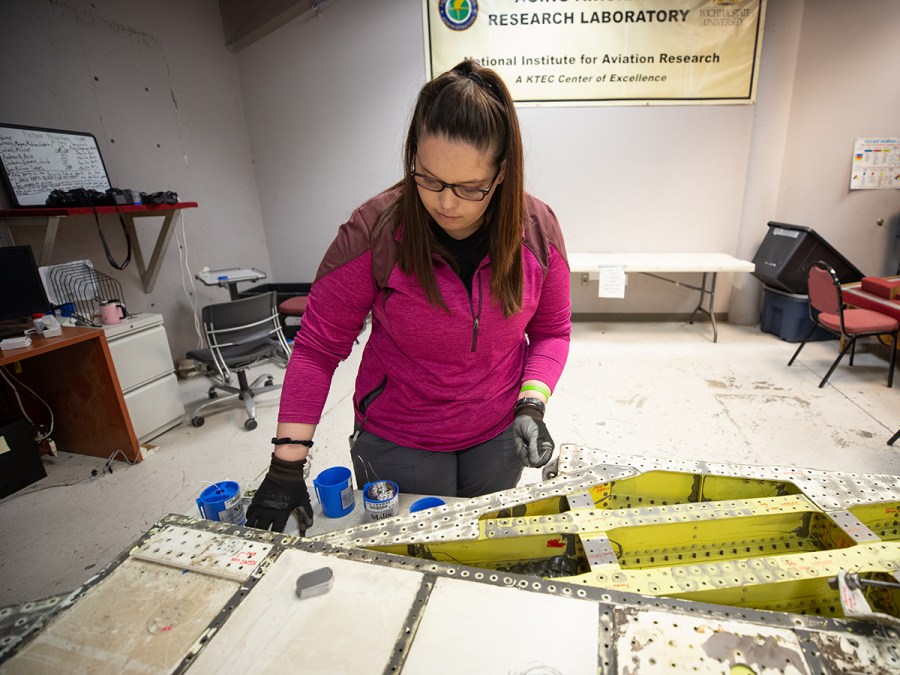Wichita State University Joins National Science Foundation’s Innovation Corps Great Plains Hub
Wichita State University has taken a significant step forward by joining the National Science Foundation’s Innovation Corps (I-Corps) Great Plains Hub. This partnership is expected to open new doors for students, faculty, staff, and the broader Wichita community, offering them a platform to explore their ideas in a more practical and entrepreneurial manner.
Sherry (Gegen) Whitson, program director for WSU Strategic Initiatives, highlighted the importance of this collaboration in a recent statement. “This partnership gives students, faculty, staff and the Wichita community at large the opportunity to explore their idea more practically and learn how to talk to potential customers,” she said. “I believe it will help build on our innovation ecosystem.”
The I-Corps program aims to bridge the gap between academic research and real-world applications. It provides scientists, engineers, students, and community members with the tools and knowledge needed to commercialize their ideas and innovations. The initiative emphasizes hands-on learning, mentorship, and networking opportunities that can be crucial for turning concepts into viable products or services.
Dr. Jeremy Patterson, dean of the College of Innovation and Design at Wichita State and faculty lead for the program, expressed his enthusiasm about the university’s involvement. “We are proud to join the Great Plains I-Corps Hub, partnering with leading research institutions to bring world-class training, mentorship and networking to our region,” he said. “I’ve been through every phase of the program and have seen firsthand how I-Corps gives researchers a real-world understanding of what it takes to be an entrepreneur.”
Opportunities for Students and Researchers
Under the I-Corps program, Wichita State students will have the chance to gain valuable startup experience. Eligible student teams will receive grants and mentorship from experienced entrepreneurs and industry professionals. This support can be instrumental in helping students turn their innovative ideas into successful ventures.
Debra Franklin, associate vice president of Strategic Initiatives and Industry Engagement at Wichita State, emphasized the importance of investing in future technologies. “It’s more important now than ever to invest in and expand upon the technologies of our future,” she said. “Aviation and health technologies have long product development cycles. I-Corps training will enable us to enhance the productivity and processes that go into developing something as concrete as a wearable or as complex as a composite aircraft.”
The Great Plains I-Corps Hub includes several prominent institutions such as the South Dakota School of Mines and Technology, the University of Montana, the University of Wyoming, and the University of Nebraska at Omaha. North Dakota State University leads the hub, which serves as a collaborative network aimed at fostering innovation across the region.
A Legacy of Innovation
The I-Corps program was founded in 2011 as part of President Barack Obama’s Strategy for American Innovation. Over the years, it has trained thousands of researchers and contributed to the creation of over 1,300 startups. These efforts have generated more than $3 billion in economic impact, demonstrating the program’s effectiveness in driving technological advancement and entrepreneurship.
For those interested in learning more about the Innovation Corps, additional information is available through official channels. The program continues to evolve, adapting to the changing landscape of technology and business, while maintaining its core mission of empowering researchers and innovators to bring their ideas to life.
By joining the I-Corps Great Plains Hub, Wichita State University is positioning itself as a key player in the regional innovation ecosystem. The university’s commitment to fostering creativity, collaboration, and entrepreneurship is likely to have a lasting impact on both its students and the wider community.







